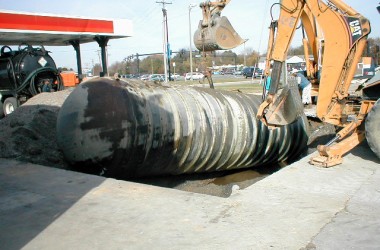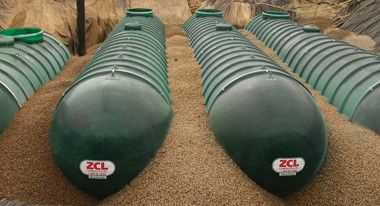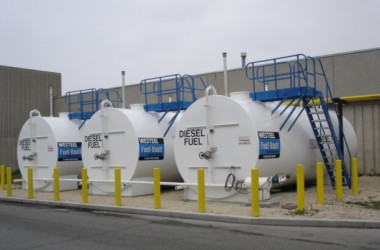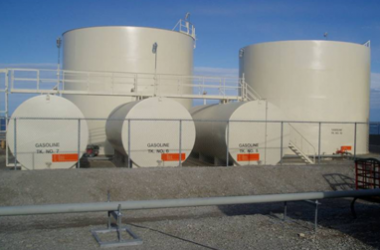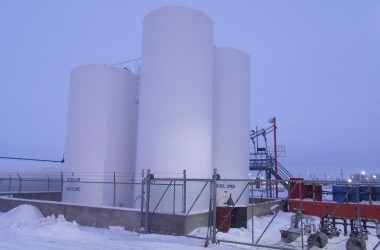APSSCA Bylaws
Article 1 – Name Article 5 – Meeting of Members & Voting
Article 6 – Board of Directors
Article 7 – Duties of Officers Article 9 – Financial Operations
Article 1 – Name
The name of this organization shall be Alberta Petroleum Storage System Contractors Association (APSSCA).
Article 2 – Purposes
The purposes of the Association shall be:
- To inform members of regulatory and legislative requirements in matters related to safety, labour standards, environment and applicable codes.
- To advance the professional competence of members through dissemination of information related to technical developments, training, standards and codes pertaining to the design, installation, removal, maintenance and testing of petroleum storage and distribution systems.
- To promote improvement in the environment, though training, education and other initiatives that will reduce the contamination of soil, groundwater, and air as a result of uncontained petroleum releases from petroleum storage and distribution equipment.
- To elevate the professional level of persons engaged in the installation, removal, and maintenance and testing of petroleum storage and distribution systems, through an acceptable and recognizable training and certification program for persons engaged in such work.
- To encourage adoption of laws and regulations which recognize the environmental, health and safety values of responsible contractors that deliver resources to the petroleum storage and distribution industry.
- To enhance member firms, through the development of a code of ethics for companies engaged in the installation, removal, maintenance and testing of petroleum storage and distribution facilities, and through encouragement of adherence to the code.
- To play an active role with regulatory agencies and petroleum marketers in the improvement and or establishment of appropriate standards and regulations related to the safety, operation, and environmental integrity of petroleum storage and distribution equipment and facilities.
- To improve the awareness of the industry and provide information to the general public.
- To promote, in all lawful ways commensurate with public interest, the business development and economic welfare of members of the Association.
Article 3 – Bylaws
- Interpretation: Words importing the singular include the plural and vice versa, and words importing a male person include a female person and a corporation.
- Location: The principal office of the Association shall be located in Alberta or in such other location as the Board of Directors may select. This provision is alterable.
- Classifications: Membership in the Association shall consist of the following classes: Active and Associate Members
- Active Members: Active member companies consist of independent business firms primarily engaged in the design, maintenance, installation, removal or testing of petroleum storage and delivery systems. Active members shall have voting privileges and shall occupy seven of ten seats on the Board of Directors. Active member companies must maintain a place of business in the province of Alberta.
- Associate Members: Associate Members shall be those who do not meet the criteria for Active Members, but are in a related business, or have an interest in the activities of the Association. Associate membership shall not have voting privileges but may occupy a maximum of three seats on the Board of Directors. Examples of Associate Members would be equipment manufacturers and suppliers, subcontractors, consultants and petroleum marketers.
- Official Representative: Each Active Member company or Associate member company shall designate, on the application provided by the Association, an individual to serve as Official Representative to the Association. The Official Representative shall be the person who receives communications from the Association and who otherwise represents the company in Association activities. Only Official Representatives of Active member companies, or their duly designated proxies, shall be eligible to vote in closed meetings or the Annual General Meeting for the transaction of business and election of Directors. Other representatives from Active Member firms may attend the respective closed meetings without the power to vote.
- Application Procedure: Active or Associate applicants shall be admitted to membership only in accordance with the following:
- Application must be made to the Association on the official application form provided.
- Any additional verifying information requested by the Association, as a means of ascertaining whether the applicant meets the requirements for membership described in this article, must be submitted upon request.
- The applicant must be endorsed by at least two Active Members in good standing.
- Upon receipt of application, the Association’s Executive Director or Secretary shall forward the same to the members of the membership committee for recommendation to the Board of Directors at the earliest opportunity. This in turn shall require a vote by the Board of Directors and if approved by a two-thirds vote, then the applicant shall be admitted to the membership in the proper classification, and upon payment of appropriate fees. The applicant will not be present at any meetings in review of the application.
- Membership Suspension or Termination: Membership may be revoked for the following reasons:
- Non-Payment of Fees: Any Active or Associate Member who shall become ninety days in arrears in payment of fees or other monies owed to the Association shall be notified by email and if said moneys are not paid within 30 days thereafter, the membership shall be revoked. In such an event the firm membership that has been revoked shall not be eligible for readmission until at least one year has passed from date of revocation.
- Other Causes: The Board of Directors may revoke or suspend any membership which in the opinion of the Board, has failed to comply with these bylaws, or which has exhibited conduct, which is inconsistent with the interests and purposes of the Association. Revocation or suspension of a membership in this manner shall be accomplished only at a meeting of the Board of Directors at which a quorum is present, and a two-thirds majority vote shall be required.
- Withdrawal From Membership: Any Member wishing to withdraw from membership may do so upon a notice in writing to the Board of Directors through the Secretary.
- Reinstatement: Former members who have been involuntarily suspended or terminated may be reinstated by the Board of Directors, upon payment of all fees owed at the time of termination, and after fulfilling any other obligations prescribed by the Board of Directors.
- Condition of Membership: Members of the Association, as a condition of their membership, shall subscribe to the purposes of the Association as set forth, and shall agree to conform to the provisions of these bylaws.
Article 4 – Fees
- Fees: Fees for Active Members and Associate Members will be set by the Board, as subject to change as they deem necessary to meet the requirements of the Association.
- Period: Membership fees shall be paid for one year in advance and be for a one-year term.
- Due Date: The annual fee is due on the anniversary of the member’s joining of the Association. Interest may be charged on overdue fees after 30 days.
Article 5 – Meetings of Members & Voting
- Annual General Meeting: The Association shall hold an annual meeting within six (6) months of its fiscal year end of December 31stof each year. Financial Statements shall be presented to the membership at this meeting. Election of Directors will be made at this meeting.
- Other General Meetings: General Meetings may be called at any time by the Secretary upon the instructions of the President or the Board of Directors. A special meeting shall be called by the President upon receipt by him of a petition signed by one-third of the Active Members in good standing, setting forth the reasons for calling such meeting.
- Notice of Meetings: Notice of any business meeting of the Association at which official Association business is to be transacted shall be forwarded to the Official Representative of each Active Member company with not less than 14 days notice. Notice of such meeting shall specify the place, day and hour of the meeting and shall be sent to the email address of the Official Representative on record. The accidental omission to give notice of a meeting to, or the non-receipt of a notice by any of the members entitled to receive notice does not invalidate proceedings at that meeting.
- Voting: At all business meetings of the Association, the Official Representative of each Active Member company shall have one vote, and may take part and vote in person or by proxy. Unless otherwise specifically provided in these bylaws, a majority vote of the Official Representatives of Active Member companies shall govern. In the case of a tie vote, the chair does have a casting or second vote in addition to the vote to which he or she may be entitled as a member, and the proposed resolution does pass.
- Quorum: Four members in good standing shall constitute a quorum at any meeting.
- Proxy: Should the Official Representative of any Active Member company be unable to attend a business meeting of the Association, he or she may authorize another employee of the Official Representative’s member company, to attend and vote in place of the Official Representative. Such authorization must be in writing by the Official Representative.
Article 6 – Board of Directors
- Authority and Responsibility: The governing body of this Association shall be its Board of Directors. The Board of Directors shall exercise supervision, control, and direction of the affairs of the Association; shall determine its policies and changes therein; shall actively pursue the objectives of the Association, supervise the disbursement of its funds, and be responsible for the interpretation of these bylaws. The Board of Directors may adopt such rules and regulations for the conduct of business as shall be deemed advisable and may, in the execution of the powers granted, delegate certain of its authority and responsibility to an Executive Director and appointed committees.
- Composition: The Board of Directors shall be comprised of four Officers – the President, Vice President, Secretary and Treasurer plus three additional Directors from Active Members, and three from Associate Members, for a total of ten Directors.
- Term of Office and Manner of Election: Directors are to be elected at the Annual General Meeting for a term of one year. New Directors may be nominated by a member of the Board of Directors prior to the Annual General Meeting. Directors may also be nominated by Active Members at the Annual General Meeting. The election of all Directors shall occur at the Annual General Meeting. Officers of the Association shall be elected by Directors at the first meeting of the newly elected Board.
- Resignation or Removal of Directors: A Director may resign by giving written notice to either the Secretary or President. The Board may, for cause deemed appropriate by the Board, remove a Director from office. Active members, may, by resolution passed by a majority of the votes of such members at a meeting called for such purpose, remove that Director before the expiration of that Director’s term for any cause which those members may deem reasonable.
- Vacancies: An Officer of the Association who becomes incapacitated or is otherwise incapable of completing his or her term of office, for whatever reason, shall be selected from within the Board of Directors. If a Director becomes incapacitated, severs his or her relationship with the member company or if the Director’s company is no longer eligible for membership, a vacancy on the Board of Directors will occur. In such an event, the Board of Directors may appoint a Director until the next Annual General Meeting of the Association.
- Meetings: The Board of Directors shall meet on the same day as the Annual General Meeting of the Association and at such other times during the course of the year as the President shall deem necessary. A special meeting may be called on the request of any two Active Members, provided the request is made in writing to the President, declaring the business to be discussed. The location of all meetings shall be decided by the Board. Meetings of the Board shall be called by email with ten days advance notice provided to each Director.
- Voting: Board decisions shall normally be made at duly scheduled meetings of the Board of Directors. However, Board votes may be taken through use of mail ballots, conference telephone calls or email, should the issue, in the judgment of the President, warrant such method of balloting. Any Director who finds it necessary to be absent from a regularly scheduled Board of Directors meeting, may appoint as proxy, for that meeting, the Official Representative of another member company not currently a member of the Board of Directors. Such authorization must be made in writing. The proxy, so appointed, shall have the same voting rights during the course of the meeting, as any other Director.
Article 7 – Duties of Officers
- President: The President shall be the chief elected officer of the Association, and shall serve as Chair of the Board of Directors. The President shall appoint all committees and shall communicate to members information on matters that relate to the status of the Association and its membership. The President shall perform other such duties as are necessarily incident to the office of President.
- Vice-President: In event of the absence of the President, the Vice-President shall perform the duties of the President. If the President and Vice-President are both absent, a Chair of the meeting shall be appointed from the remaining, attending Directors.
- Secretary: The Secretary shall keep accurate minutes of all meetings. He or she shall have charge of the Seal of the Association, which seal, whenever used shall be authenticated by the signature of the Secretary and the President, or, in the case of the death or inability of either to act, by the Vice-President. In the case of absence of the Secretary, his or her duties shall be discharged by such Director as may be appointed by the Board of Directors. The Secretary shall have charge of all the correspondence of the Association. The Secretary shall also keep a record of all Active and Associate Members of the Association and their addresses, send all notices of the various meetings as required, and shall collect and receive the annual fees or assessments levied by the Association, such monies to be promptly turned over to the Treasurer for deposit in the Association’s bank.
- Treasurer: The Treasurer shall receive all monies paid to the Association and shall be responsible for the deposit of same in the Association’s bank. He or she shall properly account for the funds of the Association and keep such books as may be directed. He or she shall present a full, detailed account of receipts and disbursements to the Board of Directors whenever requested and shall prepare for submission to the Annual General Meeting, a statement of the financial position of the Association and submit a copy of same to the Secretary for the records of the Association. The offices of the Secretary and the Treasurer may be filled by one person if so-decided by the Board of Directors.
- Executive Director: Should the Board of Directors desire, an Executive Director may be hired by the Association. The Executive Director shall be responsible for all day-to- day activities of the Association. He or she shall report directly to the President and the Board of Directors and may be offered compensation. An Executive Director may assume some of the clerical duties of the Secretary and Treasurer. The Executive Director may have no current employment or contractual relationship with any member company.
Article 8 – Indemnification
- Indemnification: In accordance with the Societies Act, every Director, Officer or employee of the Association shall be indemnified by the Association against all expenses and liabilities, including legal fees, reasonably incurred or imposed upon them in connection with any proceeding to which they have been made a party, or in which they may become involved by reason of being, or having been, an Officer, Director, or employee of the Association, except in such cases wherein the Officer, Director, or employee is guilty of willful malfeasance in the performance of duties.
Article 9 – Financial Operations
- Fiscal Period: The fiscal period of the Association shall begin on January 1 and end on December 31.
- Borrowing: In order to carry out the purposes of the Association, the Directors may, on behalf of and in the name of the Association, raise or secure the payment or repayment of money in a manner they decide. The members may, by special resolution, restrict the borrowing powers of the Directors, but a restriction imposed expires at the next Annual General Meeting. A debenture will not be issued without authorization or a special resolution.
- Budget: Prior to the beginning of each year, the Board shall adopt an annual operating budget covering all activities of the Association.
- Inspection of Books: The books and records of the Association may be inspected by any Active or Associate Member at the Annual General Meeting provided for herein or at anytime upon giving reasonable notice and arranging a time satisfactory to the Officer or Officers having charge of same. Each member of the Board shall at all times have access to such books and records.
- Financial Statement Preparation: The accounts of the Association shall be compiled not less than annually by a professional accountant, who shall be recommended by the President with the approval of the Board. Two members must be identified to audit the financial statements each year to ensure accuracy and consistency with financial records of the Association. Copies of financial statements shall also be made available to the Official Representatives of all member companies at the time of the Annual General Meeting.
Article 10 – Dissolution
- Dissolution: The Association shall use its funds only to accomplish the objectives and purposes set forth in these bylaws. No part of said funds shall inure, or be distributed to members of the Association. On dissolution of the Association, any funds remaining shall be distributed to one or more regularly organized and qualified Alberta-based charitable, educational, scientific, or philanthropic organizations, to be selected by the Board of Directors.
Article 11 – Amendments
- Proposing: Amendments to or repeal of these Bylaws may be proposed by the Board of Directors on its own initiative or upon petition by 20 percent or more of Official Representatives of Active Member companies. The Board shall present all such proposals to Active Members with or without endorsement.
- Approval: Written notice of proposed amendments or repeal of these Bylaws must be sent to Active Member companies at least 10 days in advance of the meeting. Amendments shall be approved by special resolution of 75% affirmative vote of Official Representatives of Active Member companies, present and voting at any Annual General Meeting or special meeting of the Association.
